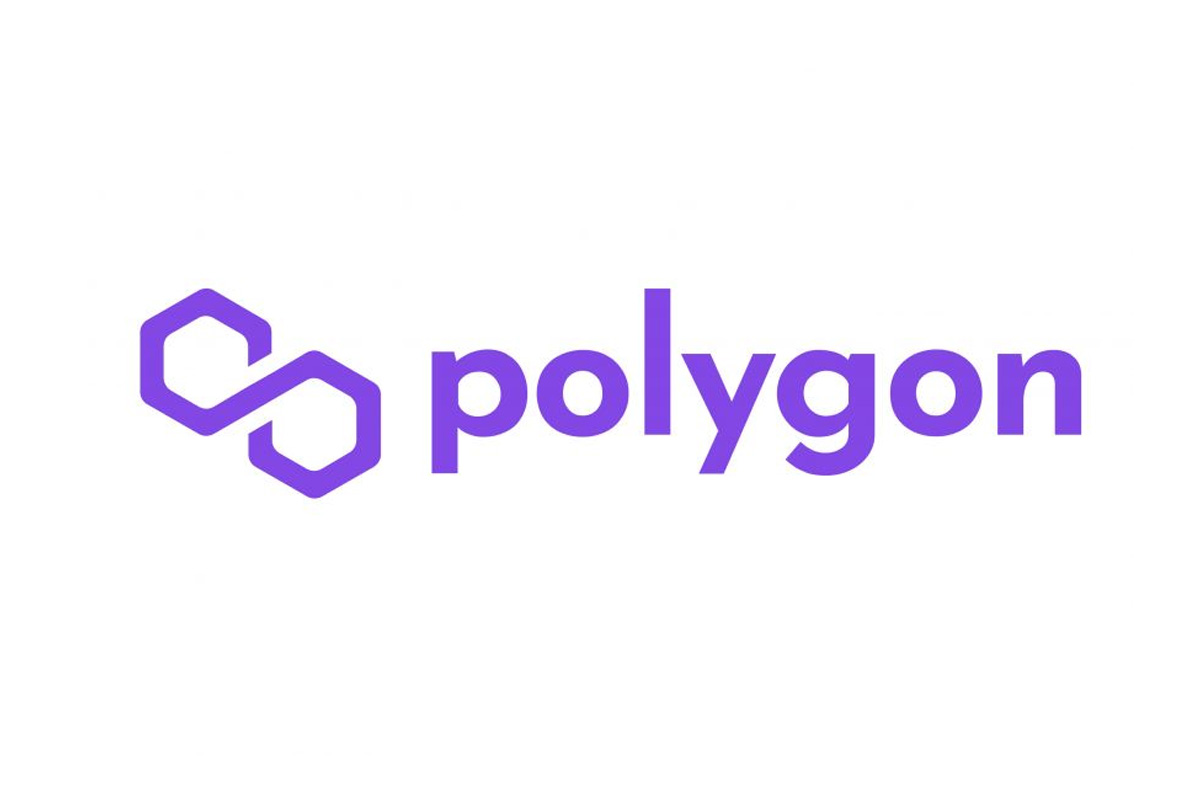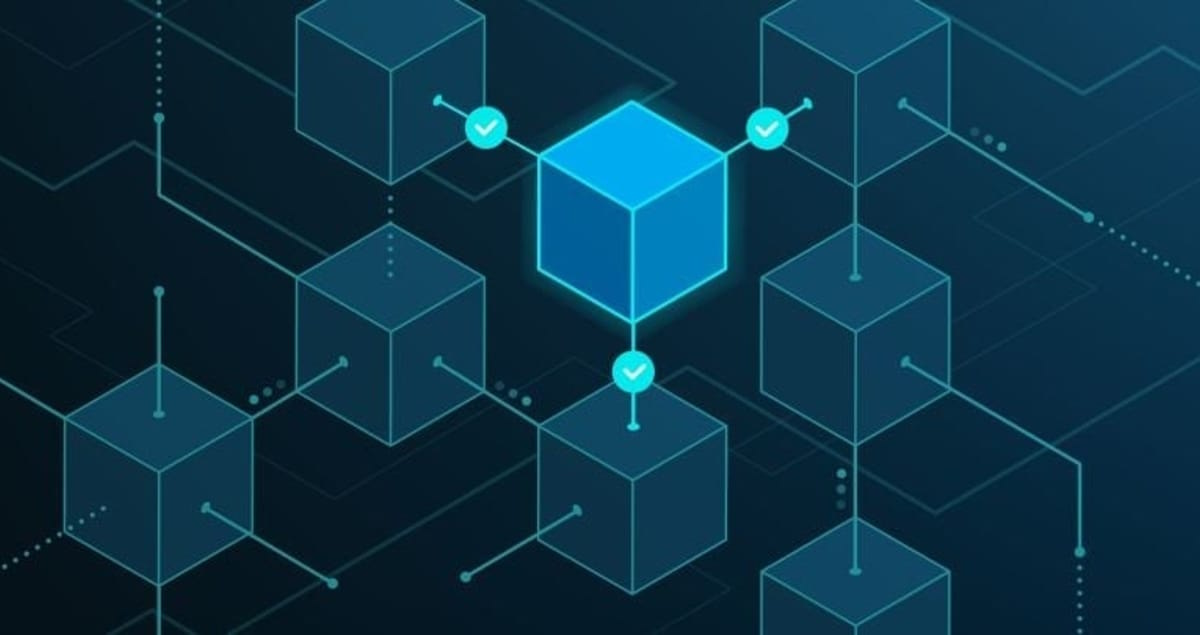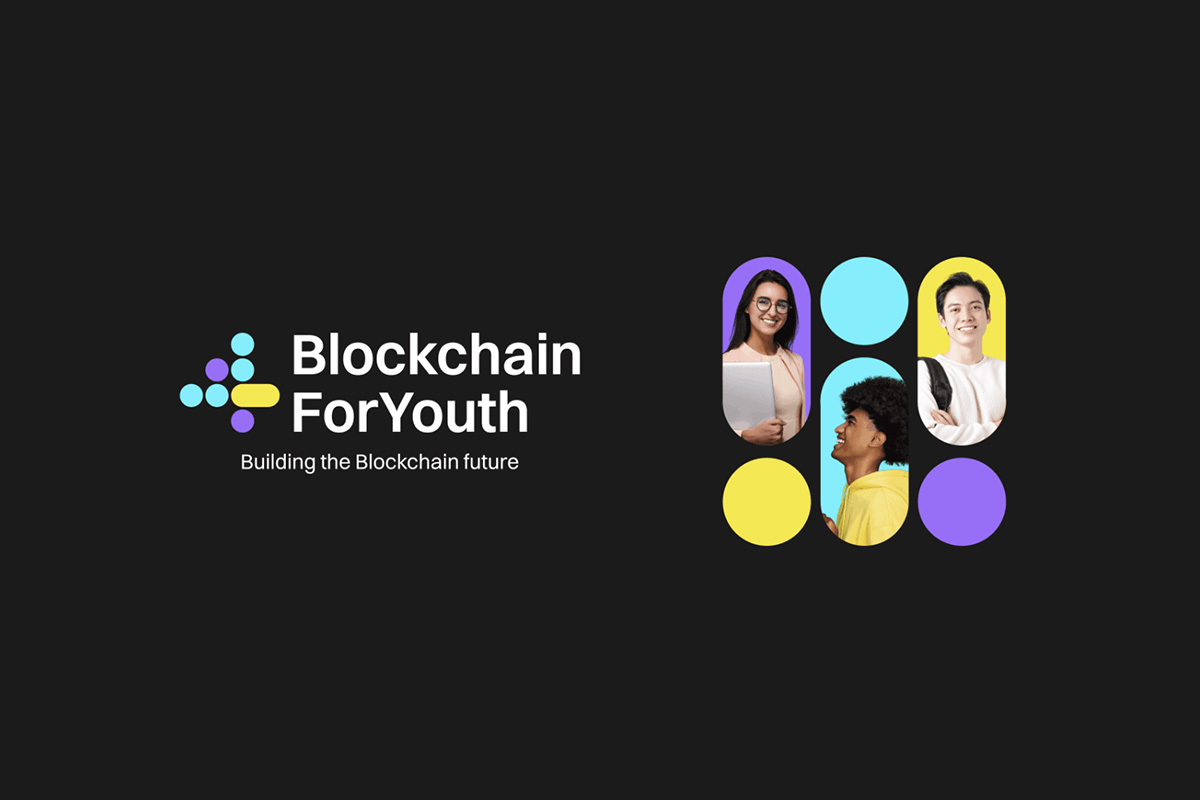Blockchain
Sequoia Capital India Leads $450 Million Round for Polygon With SoftBank, Galaxy, Tiger, Republic Capital

Polygon raised about $450 million in a funding round led by Sequoia Capital India with participation from more than 40 major venture capital firms including SoftBank Vision Fund 2, Galaxy Digital, Galaxy Interactive, Tiger Global, Republic Capital and prominent investors like Alan Howard (co-founder, Brevan Howard) and Kevin O’Leary (Mr. Wonderful from ABC’s Shark Tank).
Polygon’s first major financing round since the project’s founding in 2017 has also attracted contributions from Alameda Research, Transcend Fund, Makers Fund, Animoca Brands, global video game leader and games industry investor Scopely, dune ventures, Union Square Ventures, Alexis Ohanian’s Seven Seven Six, Elevation Capital, Sino Global Capital, DCG, Standard Crypto, Celsius, Dragonfly Capital, Variant Fund, Blue Pool Capital, WorkPlay Ventures (led by Zynga founder Mark Pincus), and many more. The funds will be raised through a private sale of Polygon’s native MATIC token.
This will allow the team to consolidate its lead in the race to scale Ethereum, obviating the need for alternative blockchains and paving the way for mass adoption of Web3 applications. Polygon is building a suite of scaling solutions, including Polygon PoS, Polygon Edge and Polygon Avail, that is similar to what Amazon Web Services offers Web2 developers — a tool for every possible use case. The team is also investing in cutting-edge zero knowledge (ZK) technology that will be key to onboarding the next billion users to Ethereum.
Polygon has always been a community-first project and owes its success to the ecosystem of early believers, developers and stakeholders. This investment round is the tide that lifts all boats and exemplifies the role the community plays in making Web3 a reality.
“Web3 builds on the early Internet’s open-source ideals, enabling users to create the value, control the network and reap the rewards. Ethereum, scaled by Polygon, will be the bedrock of this next stage in the Web’s evolution,” said Polygon co-founder Sandeep Nailwal. “Technological disruption didn’t start with Web2, nor is it going to end there. That’s why we are very excited to see some of the same firms that funded the previous round of innovation now being our Web3 vision.”
The most pressing question for the Ethereum community has been how to increase the network’s capacity to handle more transactions. The skyrocketing popularity of new applications in decentralized finance (DeFi) and non-fungible tokens (NFTs) brought with it congestion and soaring fees. Polygon has stepped in with a broad range of scaling options and transaction rates that are among the industry’s lowest.
Over the past year, Polygon has attracted some of the biggest projects in Web3, from DeFi protocols such as lending platform Aave to luxury brands company Dolce & Gabbana and NFT marketplaces including OpenSea and Mark Cuban’s Lazy.com. Virtual worlds such as Decentraland and Animoca Brands’ The Sandbox are also laying the groundwork for the metaverse on the network. More than 7,000 decentralized apps (dApps) are currently building on Polygon, making it the main destination for Web3 platforms and developers.
“The platform of choice to build on the blockchain today is Polygon. Thousands of developers across a range of applications are choosing Polygon and their complete set of scaling solutions for the Ethereum ecosystem,” said Shailesh Lakhani, MD at Sequoia India. “This is an ambitious and aggressive team, one that values innovation at its core. Sequoia Capital India is thrilled to lead this significant financing round.”
Polygon PoS adoption has soared exponentially, with a billion transactions recorded last year. The network’s more than 130 million unique addresses and over 2.67 million monthly active users now generate some 3 million transactions per day, more than double the volume of Ethereum. Polygon’s native MATIC token has a market capitalization of over $12 billion.
To make sure the growth can continue into the foreseeable future, Polygon is making major investments into zero knowledge cryptography, a technology widely seen as the end game for blockchain scaling. The core development team made it a centerpiece of its strategic vision in the Zero Knowledge Thesis published in August. As part of that mission, the team has committed $1 billion, a significant portion of the treasury, to ZK-related efforts.
Polygon is now home to an unrivaled collection of ZK efforts. The portfolio includes a zkEVM being developed by Polygon Hermez, privacy-focused Polygon Nightfall rollup built in collaboration with EY, Polygon Miden’s general purpose STARK-based rollup and Polygon Zero team applying a technique called recursion to ZK proofs.
“Adoption by individual users and enterprises, the emergence of real-world applications like DeFi and NFTs, and broader involvement from the institutional community are all strong indicators that Web3 has passed a major installation milestone and is here to stay,” Galaxy Digital CEO Mike Novogratz said. “Together, Polygon and Ethereum are building the base layer for a new Internet, which is why we’re excited to play a role in this important fundraise.”
Blockchain
Blocks & Headlines: Today in Blockchain – May 9, 2025

Welcome to Blocks & Headlines, your daily deep-dive into the most impactful movements in blockchain technology and the cryptocurrency sector. In today’s edition, we unpack five major stories that illuminate trends in funding, sustainability, payment innovation, banking collaborations, and technical interoperability—all vital signposts for developers, investors, and Web3 enthusiasts. Here’s what’s on the docket:
-
Camp Network’s New IP-Focused Testnet
-
Blockchain for Sustainable Packaging
-
Meta’s Blockchain-Based Payment System Plans
-
Mocse Credit Union Joins Metal Blockchain’s Innovation Program
-
Apex Fusion on the Urgency of Blockchain Defragmentation
Through concise reporting, opinion-driven analysis, and SEO-optimized insights—featuring keywords like blockchain, cryptocurrency, Web3, DeFi, and NFTs—we’ll explore how these developments shape the next wave of decentralized finance, enterprise adoption, and mass onboarding.
1. Camp Network Launches Testnet for IP-Focused Blockchain
What Happened:
Camp Network has unveiled its long-anticipated testnet following a $30 million funding round led by leading crypto VCs. This new network is tailored for intellectual property (IP) asset tokenization, aiming to streamline rights management and royalty payments via smart contracts.
-
Technical Highlights:
-
Modular Consensus: Hybrid PoS/PoA consensus that allows IP rightsholders to validate transactions.
-
On-Chain Licensing: Smart contracts enabling programmable licensing terms, automated royalty splits, and revocable access controls.
-
Interoperability: Bridges to Ethereum and Polygon enable seamless asset transfers and liquidity provisioning.
-
Analysis & Implications:
By focusing on IP tokenization, Camp Network addresses a glaring gap in current NFT platforms, which often lack robust legal-framework integration. This specialization could catalyze:
-
New Revenue Models: Musicians, authors, and inventors can fractionalize royalties, unlocking liquidity and democratizing investment in creative works.
-
Institutional Adoption: Traditional publishers and studios may pilot tokenized licensing, accelerating blockchain’s entrée into regulated industries.
-
Secondary Markets: With on-chain licensing data, marketplaces can enforce provenance and anti-fraud measures more effectively.
Camp Network’s testnet success will hinge on developer tooling, legal partnerships, and gas-fee economics. Should it deliver a smooth UX and clear ROI for rightsholders, it could set a new standard for Web3 IP infrastructure.
Source: The Block
2. Blockchain as a Sustainable Packaging Game-Changer
What Happened:
A recent report explores how blockchain can revolutionize sustainable packaging by delivering end-to-end supply-chain transparency. The solution combines on-chain tracking of materials, IoT sensor data for carbon footprint measurement, and tokenized incentives for recycling.
-
Key Components:
-
Immutable Traceability: Each packaging component is logged on a public ledger, enabling consumers to verify sustainable sourcing.
-
Carbon Credit Tokens: Brands earn tokenized credits when they hit recycling targets, tradable on carbon-market DAOs.
-
Consumer-Facing Apps: QR-code scanning interfaces reveal environmental impact metrics and reward programs.
-
Analysis & Implications:
Integrating blockchain with sustainable packaging tackles greenwashing and fragmented reporting. The ability to tie physical materials to on-chain records introduces:
-
Enhanced Accountability: Brands face real-time public scrutiny of ESG claims, improving trust and regulatory compliance.
-
Market Mechanisms: Carbon credit tokens linking packaging to broader DeFi ecosystems incentivize circular economy behaviors.
-
Consumer Engagement: NFTs or loyalty tokens tied to sustainable purchases could accelerate brand loyalty in eco-conscious demographics.
This convergence of blockchain, IoT, and token economics exemplifies how decentralized technologies can underpin not only financial systems but also planetary stewardship.
Source: Yahoo Finance
3. Meta Plans New Blockchain-Based Payment System
What Happened:
Meta is reportedly developing a blockchain-powered payment network to underpin its digital wallet ambitions, aiming to facilitate low-fee remittances, in-app purchases, and peer-to-peer transfers across Facebook, Instagram, and WhatsApp.
-
Proposed Features:
-
Cross-Border Settlements: Utilizing stablecoins pegged to major fiat currencies to avoid volatility.
-
Layer-2 Scalability: Built atop an Ethereum Layer-2 or a proprietary chain to ensure sub-second confirmation times and minimal fees.
-
Regulatory Compliance: On-chain KYC/AML checks integrated via permissioned sidechains.
-
Analysis & Implications:
Meta’s push into blockchain payments could reshape the competitive landscape:
-
Crypto On-Ramp: With 3 billion+ monthly users, built-in wallet functionality could massively expand mainstream cryptocurrency adoption.
-
Disintermediation Risk: Traditional payment processors and remittance services face margin compression as Meta internalizes transaction flows.
-
Regulatory Scrutiny: Centralized control of a global payments network raises data-privacy and antitrust questions, likely attracting significant oversight.
If Meta balances decentralization ethos with compliance demands, it could serve as a blueprint for other Big Tech firms eyeing Web3 integration.
Source: Dig.watch
4. Mocse Credit Union Joins Metal Blockchain’s Banking Innovation Program
What Happened:
Mocse Credit Union has signed on to Metal Blockchain’s Banking Innovation Program, a consortium designed to accelerate pilot projects in tokenized lending, fractional deposits, and programmable savings accounts.
-
Program Benefits:
-
Sandbox Environment: Regulatory-compliant testbeds for tokenized asset experiments.
-
API Integrations: Plug-and-play modules for KYC, smart-contract auditing, and fiat-crypto on-ramps.
-
Co-Innovation Workshops: Joint labs with fellow financial institutions and DeFi projects.
-
Analysis & Implications:
This partnership signals the banking sector’s growing willingness to explore blockchain beyond hype:
-
Tokenized Deposits: By issuing interest-bearing stablecoin equivalents, credit unions can attract a new demographic of digitally native savers.
-
Risk Management: Sandboxed pilots allow institutions to evaluate smart-contract risks without exposing core systems.
-
Interoperable Finance: Aligning legacy banking with DeFi rails can unlock hybrid products—e.g., flash loans collateralized by insured deposits.
Such collaborations could spearhead a wave of embedded finance offerings, blurring the lines between centralized and decentralized banking infrastructures.
Source: Newswire
5. Apex Fusion: Defragmenting Blockchain for Mass Adoption
What Happened:
In an op-ed, Apex Fusion argues that blockchain interoperability and defragmentation are critical prerequisites for mainstream Web3 uptake. The piece advocates standardized cross-chain messaging protocols, unified identity layers, and aggregated liquidity pools.
-
Core Proposals:
-
Protocol Neutral Messaging: A universal middleware to transmit value and data across disparate chains.
-
Decentralized Identity (DID): A shared credential framework enabling seamless dApp logins without wallet-hopping.
-
Liquidity Hubs: Cross-chain Automated Market Makers (AMMs) that pool assets to reduce slippage and gas friction.
-
Analysis & Implications:
A fragmented blockchain ecosystem hinders user experience and developer efficiency:
-
Onboarding Friction: New users face wallet complexity, chain-switching hassles, and inconsistent UX across apps.
-
Capital Inefficiency: Isolated liquidity silos lead to higher trading costs and limit DeFi yield optimization.
-
Developer Overhead: Building multichain dApps requires fragmented toolkits and disparate security audits.
Solving these challenges through interoperable frameworks will be pivotal for DeFi, NFT, and enterprise Web3 solutions to scale beyond niche audiences. Apex Fusion’s recommendations may inform upcoming standards efforts by bodies like the Blockchain Governance Initiative Network (BGIN).
Source: Euro Weekly News
Conclusion
Today’s blockchain developments reflect a maturing industry at the crossroads of innovation and integration:
-
Specialized Networks: Camp Network’s IP testnet showcases niche use-cases driving targeted blockchain deployments.
-
Sustainability & Token Economics: Linking environmental impact to on-chain incentives demonstrates blockchain’s potential in non-financial arenas.
-
Big Tech Entry: Meta’s payment ambitions could accelerate global crypto adoption while raising regulatory stakes.
-
Banking Collaboration: Programs like Metal Blockchain’s underscore financial institutions’ appetite for safe, regulated Web3 experimentation.
-
Interoperability Imperative: As Apex Fusion highlights, defragmentation and cross-chain standards are essential for seamless UX and liquidity flow.
As blockchain weaves deeper into finance, supply chains, and digital ecosystems, the future hinges on striking the right balance between decentralization, compliance, and user-centric design. Stay tuned for tomorrow’s Blocks & Headlines where we continue to chronicle the pulse of Web3 innovation.
The post Blocks & Headlines: Today in Blockchain – May 9, 2025 appeared first on News, Events, Advertising Options.
Blockchain
Bitget Blockchain4Youth sostiene l’innovazione del Web3 e dell’IA all’hackathon “Build with AI” di Google Developer Group

Bitget, società Web3 e uno dei principali exchange di criptovalute, ha ottenuto un riscontro significativo in occasione del recente hackathon “Build with AI”, tenutosi dal 2 al 5 maggio 2025 presso la Constructor University. Spingendosi oltre la semplice sponsorizzazione, l’iniziativa Blockchain4Youth di Bitget ha coinvolto attivamente più di 130 studenti di talento.
L’evento, organizzato dai Google Developer Groups (GDG) on Campus, ha offerto a Bitget uno spazio dinamico per entrare in contatto diretto con gli innovatori tecnologici di nuova generazione. Nel corso di una presentazione dedicata, è stato introdotto il programma Blockchain4Youth Builder, che mostra l’impegno di Bitget nel formare giovani talenti all’interno dello spazio del Web3. Questa partecipazione evidenzia l’approccio lungimirante di Bitget nell’integrare la formazione in materia di blockchain con i settori emergenti come l’IA, riconoscendo il loro potenziale combinato.
Gli studenti hanno lavorato alla creazione di modelli basati sull’IA e di prodotti in fase iniziale utilizzando gli strumenti avanzati di Google, mentre la presenza di Bitget ha offerto una prospettiva unica su come la blockchain possa migliorare ed essere integrata nelle soluzioni di IA. Questa interazione con il mondo reale ha fornito preziose indicazioni agli studenti, colmando il gap tra conoscenze teoriche e applicazione pratica all’interno del panorama tecnologico in rapida evoluzione.
“La formazione rimane un principio fondamentale della nostra missione e, attraverso iniziative come Blockchain4Youth, intendiamo fornire alle nuove generazioni le competenze necessarie non solo per esplorare, ma anche per plasmare attivamente questo settore dinamico”, ha commentato Vugar Usi Zade, COO di Bitget. “Collaborare con comunità come il Google Developer Group offre una base preziosa per connettersi con talenti di spicco e aiutarli nel percorso di utilizzo della blockchain per creare soluzioni di impatto. Blockchain4Youth continuerà a espandere la sua portata, favorendo la crescita dei futuri leader del Web3 in grado di cogliere le numerose opportunità offerte da questa tecnologia”.
Il coinvolgimento mostrato all’hackathon “Build with AI” di GDG è un elemento chiave del più ampio programma Blockchain4Youth di Bitget, l’iniziativa aziendale dedicata alla Responsabilità Sociale d’Impresa (RSI). Questo programma mira a favorire la prossima generazione di leader Web3 attraverso opportunità formative ed esperienze pratiche.
Tra le iniziative più recenti del programma Blockchain4Youth c’è il lancio del Graduate Program di Bitget, concepito per reclutare i migliori laureati nel settore blockchain e Web3. Inoltre, l’espansione del programma Bitget Builders continua a fornire agli individui più promettenti del Web3 un’esperienza diretta attraverso gli eventi offline, i programmi formativi e la crescita strategica della community.
A proposito di Bitget
Fondata nel 2018, Bitget è una società Web3 tra i principali exchange di criptovalute al mondo. Con oltre 100 milioni di utenti in più di 150 Paesi e aree geografiche, l’exchange Bitget si impegna ad aiutare gli utenti a fare trading in modo più smart con la sua pionieristica funzione di copy trading e altre soluzioni di trading.
The post Bitget Blockchain4Youth sostiene l’innovazione del Web3 e dell’IA all’hackathon “Build with AI” di Google Developer Group appeared first on News, Events, Advertising Options.
Blockchain
India’s Fintech Market to Reach $990 Billion by 2032 at 30.2% CAGR – Fintech Firms Eye Untapped Indian Digital Payments Market with Secure, Low-Cost Digital Financial Solutions
-

 Blockchain Press Releases5 days ago
Blockchain Press Releases5 days agoHTX Premieres USD1 Stablecoin Globally, Partnering with World Liberty Financial to Forge a New Era of Decentralized Economy
-
Blockchain4 days ago
Colb Asset SA Raises $7.3 Million in Oversubscribed Round to Bring Pre-IPO Giants to Blockchain
-

 Blockchain3 days ago
Blockchain3 days agoBlocks & Headlines: Today in Blockchain – May 7, 2025 | Coinbase, Riot Games, Curve DAO, Litecoin, AR.IO
-

 Blockchain Press Releases3 days ago
Blockchain Press Releases3 days agoHTX and Justin Sun Launch $6M Mars Program Special Edition, Offering One User a Historic Space Journey
-

 Blockchain Press Releases5 days ago
Blockchain Press Releases5 days agoJuCoin made a global impact at TOKEN2049 Dubai, advancing its ecosystem with the “Peak Experience” vision and JuChain’s robust tech.
-

 Blockchain2 days ago
Blockchain2 days agoBlocks & Headlines: Today in Blockchain – May 9, 2025 | Robinhood, Solana, Tether, China, Women in Web3
-

 Blockchain2 days ago
Blockchain2 days agoBitget Blockchain4Youth sostiene l’innovazione del Web3 e dell’IA all’hackathon “Build with AI” di Google Developer Group
-

 Blockchain Press Releases4 days ago
Blockchain Press Releases4 days agoGRVT Launches Biggest Ever Trading Competition for Retail Traders, Offering Up to 175,000 USDT in Prizes







































